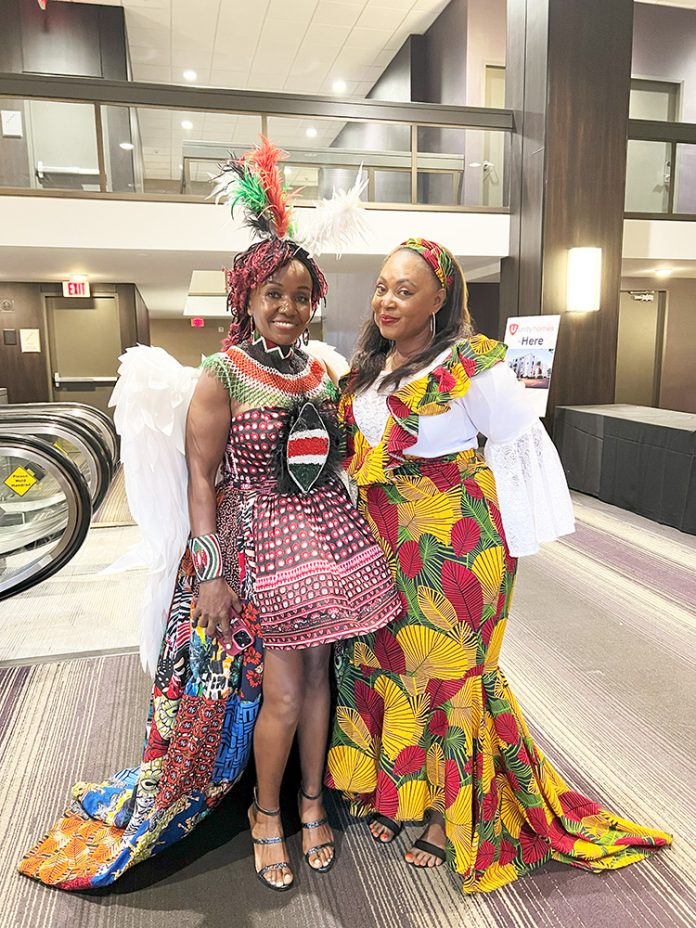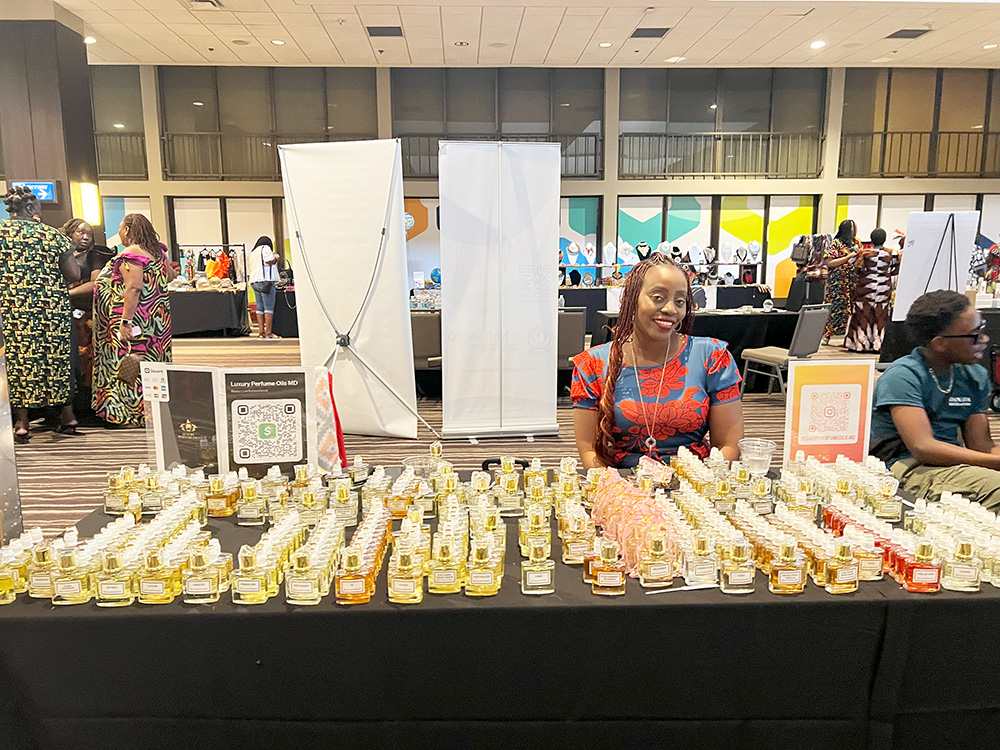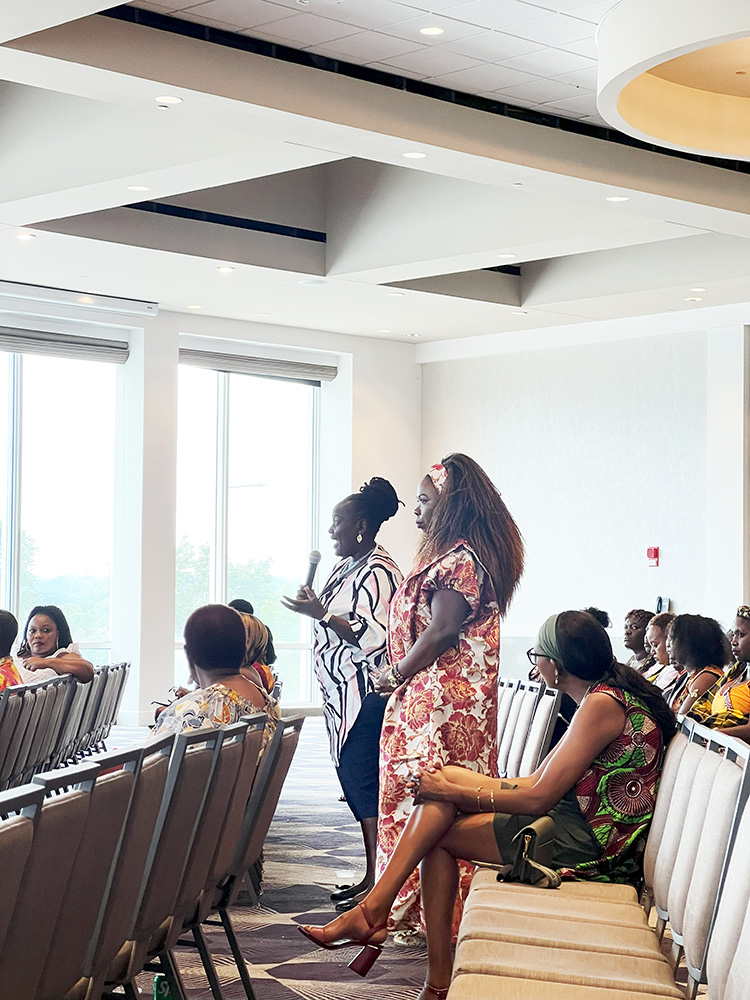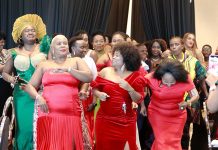

The largest organization of Kenyan women in North America began a three-day convention in Minnesota Friday to celebrate its 10th anniversary.
The convention of Kenyan Women in the United States, which is popularly known by the acronym, KWITU, brought hundreds of women from across the United States to St. Paul in what organizers called a reunion of its members.
Most attendees proudly showcased Kenyan culture by wearing kitenge, vibrant dresses with matching headgear tailored from multicolored cloth unique to East and Central Africa. Many donned earrings made with colorful traditional beads. Others wore the beaded bracelets bearing the Kenya flag and other traditional symbols.
“This is my first KWITU event, and I’m excited to be here all the way from Maryland,” Mary Kamau.
Kamau is the founder of Luxury Perfume Oils, a business she launched last year to make fragrances that mimic luxury brands but retail at a fraction of the cost. She said that she loved being a member of KWITU for social reasons, but also for the opportunities that exist for learning and growth.
“I love the fact that it has a sense of community, unity, and support for small businesses and learning about different things in life,” she said. “KWITU is a full course.”
One of the main reasons KWITU was founded is to address challenges women and young girls of Kenyan descent face. There were different panel conversations on various topics, from domestic violence and women’s health to financial literacy and entrepreneurship.
The topic of women’s health and safety, which is rarely discussed in African communities, garnered a lot of audience participation. Panel member Veronica Rotich, who lives in Minnesota, said she realized her inadequacy in health education after a near HIV scare with her partner.
“My mom never talked to me about sex,” Rotich said.

Rotich has now made it her mission to educate youth about healthy relationships and proper sex education. She is the founder of Minnesota African Youth Initiative, an organization that focuses on health education as well mental health resources for African youth.
“Parents are not comfortable, so they have people like me do it,” she said. “We need to think about helping our children,” she said. “Let’s talk to our children about healthy relationships.”
Panel members also discussed the importance of teaching children proper terms for their body part as well as appropriate behavior to help keep them safe.
Vendors with various businesses mostly owned by KWITU members had booths displaying their products and services. The ventures ranged from diaspora funeral insurance agencies, investment start-ups, real estate and land companies, to skin care and artisan products which included a Kenyan-based fashion design house completing an American tour, as well as a locally operated spice company and even a travel agency owned by a nurse.

Priscah Norton, who for many years worked as a chef in Kenya before she came to the United States, said the daunting task of finding spices that match the taste of her home country inspired her to start her own spice company. Based in Madison, Wis., sells East African spices that she grinds and packages herself.
“I hope people get an authentic taste of spices,” Norton said.
KWITU was founded by Lilly Richards in 2015. After experiencing difficulties navigating life in the United States on her own as an immigrant, she said she wanted to create an organization that offered guidance and resources for new arrivals to help them in their transition to the United States from Kenya.
“When I came here, I was young and I was alone,” Richards told Mshale in a past interview.
About Cynthia Simba, Mshale Reporter
Cynthia is a graduate of the University of Minnesota School of Journalism. She has interned at Mshale and Voice of America and previously worked at the Minnesota Daily. She recently returned from Seoul, South Korea where she was an English educator.










